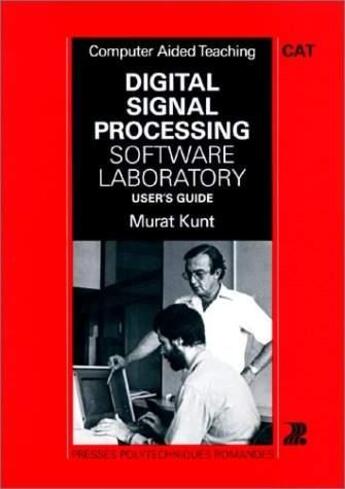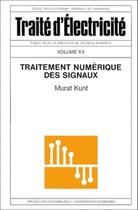-
Date de parution : 01/12/1900
-
Editeur :
Ppur
-
EAN : 9782880740405
-
Série :
(-)
-
Support :
Papier
Résumé:
The motivation that led us to create this computer aided
teaching laboratory is to facilitate the use of digital
signal processing methods in engineering practice. It is
possible to learn the methods by reading text books or by
taking correspondence courses. Mastery of the methods... Voir plus
The motivation that led us to create this computer aided
teaching laboratory is to facilitate the use of digital
signal processing methods in engineering practice. It is
possible to learn the methods by reading text books or by
taking correspondence courses. Mastery of the methods of
digital signal processing, however, requires more than
adeptness with theory. Those students and engineers in
continuing education programs who have used this software
laboratory are convinced of its usefulness.
It is now part of the digital signal processing course
offered at the Swiss Federal Institute of Technology in
Lausanne (Ecole Polytechnique Fédérale de Lausanne, EPFL).
The attention this material has received from outside EPFL
has justified its distribution by Presses Polytechniques
Romandes, a non-profit foundation. The benefits will be
used solely to support research activities in digital
signal processing at EPFL.
The subject, namely digital signal processing, and the
related methods are described in a companion book, vol. XX
of the Traité d'Electricité, Presses Polytechniques
Romandes, Lausanne, 1980. Therefore, they are not presented
again here. Brief reminders and cross references are
abundantly included in the following text. The present
state of these programs have been reached by incorporating
a plethora of remarks and criticism. They are, however,
neither complete nor perfect. Comments and remarks from the
users are always welcome.
Contents
Introduction
Signal Generation
Orthogonal Transforms
Linear Systems and Convolution
Autocorrelation Function Estimation
Spectral Analysis
Digital Filter Design and Filtering
Bibliography
Donner votre avis















